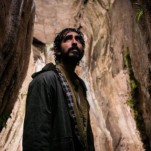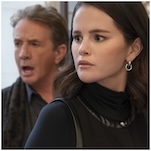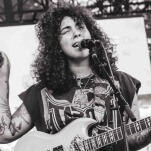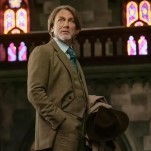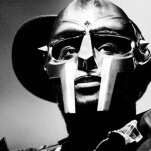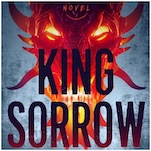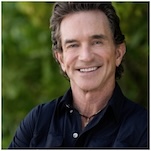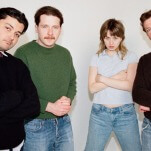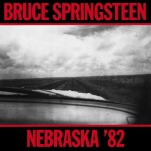5 Essential LGBTQ Documentaries
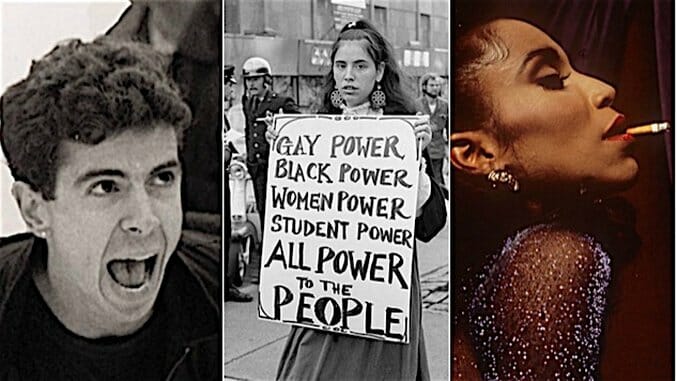
For LGBTQ Pride Month, we celebrate the trailblazers who broke down walls, who challenged the status quo, and who tilted at windmills that seemed un-tiltable. We salute the activists who literally saved lives, the authors who documented marginalized history and those who helped “crack the shield of invisibility”—as well as those who documented, humanized, and memorialized the gay, lesbian and transgender community.
1. The Times of Harvey Milk (1984)

Just six years after Harvey Milk—the first openly gay elected official in the U.S.— was gunned down came this documentary celebrating Milk’s life and legacy. Through newsreel footage and interviews of those who were there, we witness Milk’s rise from community activist to groundbreaking politician, including his rousingly successful opposition to a Proposition that would have banned all gays from working in public schools. The film follows the trial of his assassin, Dan White (and his ridiculous “Twinkie defense”) and the candlelight march remembering Milk through San Francisco.
Epstein would go on to direct such landmark LGBTQ documentaries as Common Threads: Stories from the Quilt (1989) about the AIDS quilt and and Paragraph 175 (2000), about the Nazi persecution of gays. (Amazon, iTunes, Vudu)
2. Before Stonewall (1984)

In 1969, the gay movement blazed into public consciousness as patrons of the Stonewall Inn, a gay bar in Greenwich Village, resisted arrest, leading to three historic days of riots and protests. But that wasn’t the start of the gay rights movement. In this Emmy-winning documentary by Greta Schiller, we learn how activists picketed outside the White House in 1965—when “homosexuality” was still considered a mental illness or psychological disorder—and moved from wanting to blend in to wanting to “crack the shield of invisibility” and live their lives openly. We hear from Allen Ginsberg and other celebrities about what it was like to live with the constant fear of knowing you could be arrested, harassed or lose your job with no recourse. Many gay activists first rallied for black rights and they took the lessons of the Civil Rights movement, to heart to secure the same hard-won rights for themselves. (Netflix, iTunes, YouTube, Amazon)
3. Paris Is Burning (1991)

Would Madonna have ever vogued if Willi Ninja and Angie Xtravaganza hadn’t shown her how in this bravura documentary? Jennie Livingston spent six years documenting the Drag Balls in New York City, where mostly black and latino gays and trans women duel for the best fashion runway walk and model pose to achieve “legendary” status. When the film came out, Livingston wanted to make sure people knew the movie was about more than a “cute dance.” She told the Orlando Sentinel, “This is a film that is important for anyone to see, whether they’re gay or not. It’s about how we’re all influenced by the media; how we strive to meet the demands of the media by trying to look like Vogue models or by owning a big car. And it’s about survival. It’s about people who have a lot of prejudices against them and who have learned to survive with wit, dignity and energy.” It won the grand jury prize for best documentary at the Sundance Film Festival and was named the best documentary by L.A. film critics, but (scandalously) missed out on an Oscar nod. (Netflix, iTunes)
4. The Celluloid Closet (1995)

Based on Vito Russo’s revelatory book about the depiction of gays in cinema, Rob Epstein and Jeffrey Friedman line up a who’s who of Hollywood to share amazing anecdotes: Susan Sarandon discusses how she told the producers of The Hunger, “You don’t have to be drunk to make out with Catherine Deneuve,” while Gore Vidal shares his behind-the-scenes ploy to save the 1959 Biblical epic Ben-Hur with a gay subplot — without telling Charlton Heston! And Tom Hanks states that because he was “little Tommy Hanks,” that made seeing Philadelphia, (arguably many people’s first “gay” movie) that much less scary. Not to mention great stories from Whoopi Goldberg, Lily Tomlin, Quentin Crisp, and Shirley MacLaine. Also recommended: The excellent 2011 document Vito, which details not only Russo’s research, but his fearless activism. (Amazon, iTunes, Vudu)
5. How to Survive a Plague (2012)

In the early days of the AIDS epidemic, there was no research to stop the disease, no funding, and no public acknowledgement of the tens of thousands who were dying or had already died. So two radical activists group—ACT UP and TAG (Treatment Action Group) — took the media by storm, staging protests, proclaiming “Silence = Death,” and lobbying for affordable HIV drugs as they tried to get indifferent politicians and drug companies to help them save lives.
Director David France drew from more than 700 hours of archival footage, including many demonstrations shot by ACT UP activists themselves, to create this blistering Oscar-nominated documentary. Watching the passion and determination of these activists who literally changed the world will give you chills. It deservedly won a Peabody “for its vivid, instructive remembrance of a heroic crusade and the great good it achieved.” (Netflix, Amazon, iTunes)











